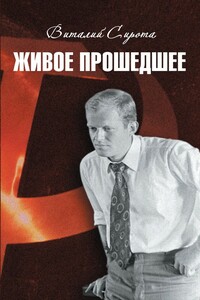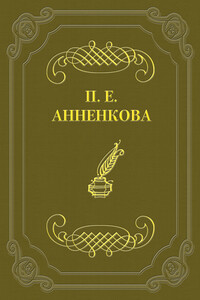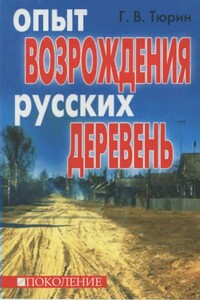The Boy Scouts In Russia - [27]
Fred looked down and saw a picket of lancers approaching, headed by an officer. And in a few minutes there were signs of great activity in the village. Soon the exodus began. And then the Uhlans turned at the road leading up to the great house, and began to climb.
"Coming to warn our people, I suppose," said Boris. "We'll make ourselves scarce, Fred. Vladimir can talk to them when they arrive."
But Fred did not go without one more sweeping look about him. And it showed him something that surprised him.
"I've got a curious feeling," he told Boris, when they had slipped into the secret passage. "I've got what we call a hunch in America-a feeling that Ivan has been fooled. You didn't see what I did just now. I'm perfectly certain I saw troops marching on two roads that aren't very far apart, to the north."
"Marching east or west?"
"East. I think a real trap is being prepared, Boris. And-I'm going to try to find out the truth!"
"How?"
"I'd better not tell you, Boris. Go back and listen-see what you can hear at the thin wall. I'm afraid that if we both go we might be heard, if they are near there. I want to know where those Uhlans come from."
"All right," said Boris, wondering a little. He went off, and Fred, as soon as he had disappeared, began to make his way very quietly, almost stealthily, indeed, toward the other end of the tunnel-the one that gave to the open air.
"He'd never have let me go if I had told him," he said to himself, feeling the need of justifying what looked like treachery, since his own conscience was accusing him. "And I didn't lie to him. I didn't say that I would be there when he came back. I only hope I get out before he finds I've gone!"
When he reached the opening he felt safe, and there he stopped and wrote a note to Boris, telling him what he meant to do and why he had not taken him into his confidence before.
"He's sure to find that," said Fred to himself. "He'll come down here looking for me, and I suppose he'd go out, too, no matter how dangerous it might be, if I didn't leave this note."
As he swung the door that let him out, Fred felt the little thrill that always came to him when he opened the way thus to the outer air. Ever since he had come upon the German soldier here the first time, he had had this feeling. This time, however, the way was clear, and he slipped out and made his way swiftly toward the parsonage. He took advantage of every bit of cover for he had no wish to be seen, at least as yet. Soon he reached the vantage spot he sought. From it he commanded a view of the village, and of the entrance to the great Suvaroff house on the hill as well.
The dismal procession from the village had already begun. The place, in fact, was already almost entirely deserted. Orders from the army evidently counted for a good deal here. Fred wondered what Americans would have done in a like case. But the departure of the villagers, who knew him, and might have recognized him even in his German guise, relieved him immensely. Before the house on the hill he could see a mounted Uhlan on guard over the horses. The rest had gone inside. There were only five of them altogether, which made him feel confident that none would be left behind. There were too few for that.
As time passed, he wondered why they stayed inside so long. In a way, it was to his liking that they should, but it made him nervous. He was afraid that a real search was being made; afraid that, by some stroke of misfortune, Boris's hiding-place had been revealed. But at last he saw the solitary horseman outside the house stiffen to rigid attention. Then the others came out, and he almost shouted in his relief when he saw that they brought no one with them. The officer swung to his saddle and in a minute more the little command was cantering down the hill. Fred looked at the village searchingly now. There was no one left. A quarter of a mile away the rear end of the wretched procession of refugees straggled along the road, going west. They were not looking back.
Now it was time to put his plan to the test. The chances of full success, as he understood perfectly, were most remote. And the danger was great. He had not seen these Uhlans; there might well be someone even in that small party who would recognize him. And he knew what would happen then, if he were caught. But his plan compelled him to run that risk, and he emerged from his shelter, and struck out boldly along the road the Uhlans had taken to come to the village. He walked northeast, and he knew that that in itself would be suspicious, but it was all part of his plan.
He had not long to wait for the plan to begin, or at least to work out according to his calculations. Behind him he heard a shout, but, affecting not to hear it, he did not turn. And in a few moments he heard the sound of galloping hoofs behind him. Even then he did not turn until a Uhlan had ridden past him.
"Stop!" cried the soldier. "Where are you going?"
Fred looked at him blankly.
"Stop!" said the German again, for Fred, after having looked at him, had moved on. Still Fred paid no attention, and the man rode up to him and leaned over, dropping a heavy hand on his shoulder and shaking him in no gentle way.

В книге рассказывается история главного героя, который сталкивается с различными проблемами и препятствиями на протяжении всего своего путешествия. По пути он встречает множество второстепенных персонажей, которые играют важные роли в истории. Благодаря опыту главного героя книга исследует такие темы, как любовь, потеря, надежда и стойкость. По мере того, как главный герой преодолевает свои трудности, он усваивает ценные уроки жизни и растет как личность.

Мемуары В. Г. Сироты (1944 г. р.) – петербургского ученого, преподавателя, основателя первой в СССР частной почтовой компании – охватывают несколько десятилетий XX и XXI веков. Среди персонажей книги социолог Игорь Кон, актер Николай Лавров, обладатель крупнейшей в мире коллекции неофициального русского искусства Георгий Михайлов и многие другие видные ленинградцы и петербуржцы.В книге сохранены особенности авторской стилистики.

«Ваше величество, позвольте матери припасть к стопам вашего величества и просить, как милости, разрешения разделить ссылку ее гражданского супруга. Религия, ваша воля, государь, и закон научат нас, как исправить нашу ошибку. Я всецело жертвую собой человеку, без которого я не могу долее жить. Это самое пламенное мое желание. Я была бы его законной супругой в глазах церкви и перед законом, если бы я захотела преступить правила совестливости. Я не знала о его виновности; мы соединились неразрывными узами. Для меня было достаточно его любви…».

В книге рассказывается история главного героя, который сталкивается с различными проблемами и препятствиями на протяжении всего своего путешествия. По пути он встречает множество второстепенных персонажей, которые играют важные роли в истории. Благодаря опыту главного героя книга исследует такие темы, как любовь, потеря, надежда и стойкость. По мере того, как главный герой преодолевает свои трудности, он усваивает ценные уроки жизни и растет как личность.

Плачевная ситуация в российских деревнях известна всем. После развала масштабной системы государственного планирования исчезли десятки и сотни тысяч хозяйств, произошел массовый отток населения из сельских районов, были разворованы последние ценности. Исправление ситуации невозможно без эффективного самоуправления в провинции.Организованный в 1997 году Институт общественных и гуманитарных инициатив (ИОГИ) поставил перед собой цель возрождения сельских районов Архангельской области и добился уникальных результатов.